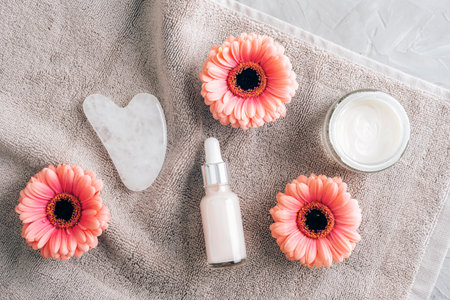Introduction: The Rise of ‘Tweakments’ in the UK
In recent years, the British beauty landscape has experienced a quiet yet powerful revolution with the rise of ‘tweakments’—a term affectionately coined to describe subtle, non-surgical cosmetic procedures. From discreet fillers to gentle skin rejuvenation treatments, these minimally invasive options have rapidly found favour across the UK. Gone are the days when beauty enhancement was synonymous with dramatic transformations or taboo secrecy; today, tweakments are embraced by individuals seeking to refine rather than redefine their appearance. This cultural shift reflects a broader move towards authenticity and self-confidence, where Britons celebrate nuanced improvements over overt alterations. As the popularity of these subtle interventions grows, so too does their influence on what it means to look and feel beautiful in modern Britain—setting the stage for a new era in which cosmetic choices are both personal and proudly displayed.
2. From Drastic to Delicate: Changing Attitudes towards Cosmetic Enhancements
In the not-so-distant past, cosmetic enhancements in the UK were synonymous with dramatic transformations — think overtly plumped lips, sharply contoured cheekbones, and bold surgical results. These bold makeovers, often inspired by celebrity culture and reality television, were once considered aspirational. However, British sensibilities have always leaned towards understated elegance and subtlety. Over recent years, this national preference has sparked a notable shift: the rise of ‘tweakments’—subtle, minimally invasive procedures designed to enhance rather than transform.
This cultural pivot is rooted in a growing appreciation for authenticity. Britons are increasingly valuing treatments that allow them to look like the best version of themselves, rather than a completely different person. The focus is now on refreshed, natural-looking results: smooth skin, softened lines, and balanced features that preserve individual character.
Why Has Britain Embraced Subtlety?
The British approach to beauty has always been shaped by an understated aesthetic. There’s a quiet confidence in embracing one’s natural attributes while subtly refining them. This philosophy aligns perfectly with the ethos of tweakments—discreet enhancements over obvious alterations.
Cultural Factors Influencing This Shift:
| Factor | Description |
|---|---|
| Media Representation | British media increasingly celebrates individuality and diverse beauty, encouraging more realistic standards. |
| Professionalism | Subtle treatments fit professional environments where extreme changes might be frowned upon. |
| Social Acceptance | Tweakments offer a way to boost confidence without inviting negative scrutiny or gossip. |
| Affordability & Accessibility | Minimal interventions are less costly and require little downtime, making them accessible to a wider audience. |
The Confidence Boost: Quiet Yet Impactful
What sets the current British beauty landscape apart is its gentle encouragement towards self-acceptance. By moving away from drastic makeovers, individuals are empowered to seek enhancements that elevate their natural features. In turn, this nurtures genuine self-confidence—a quality that resonates deeply within British culture and continues to redefine what it means to feel beautiful in your own skin.
![]()
3. Popular ‘Tweakments’ Among Britons
When it comes to the subtle art of enhancement, the UK has embraced a nuanced approach. Rather than dramatic transformations, British men and women are increasingly seeking out ‘tweakments’—those gentle, finely tuned procedures that offer natural-looking results. Dermal fillers top the list, with many opting for expertly placed injections to restore lost volume or enhance facial contours. The understated appeal lies in their ability to soften lines without erasing every trace of character, aligning perfectly with Britain’s preference for authenticity over artificiality.
Botox, too, enjoys immense popularity across the country. Its discreet use smooths away frown lines and crow’s feet, offering a refreshed appearance that still feels unmistakably you. Rather than chasing frozen expressions, UK practitioners focus on preserving individuality—a subtle lift rather than a complete overhaul. This approach resonates deeply with those who value looking well-rested and confident, rather than overtly altered.
Equally sought-after is skin rejuvenation, which includes treatments like microneedling, chemical peels, and advanced laser therapies. These methods gently revive the complexion, minimising sun damage and uneven tone while promoting a healthy glow. For many Britons, these interventions represent an investment in self-care—a way to nurture one’s skin and boost confidence without resorting to more invasive measures.
The overarching appeal of tweakments in the UK is their ability to enhance rather than transform. They allow individuals to feel like the best version of themselves—polished yet unmistakably natural. In a society that quietly champions quiet confidence, these subtle interventions have become not just trends but new benchmarks in redefining British beauty standards.
4. The Influence of British Celebrities and Media
In the UK, the journey of tweakments towards mainstream acceptance has been powerfully shaped by the influence of homegrown celebrities, influencers, and media outlets. Unlike the overt transformations often associated with American celebrity culture, British stars have championed a more understated approach to cosmetic enhancements—one that resonates deeply with the nation’s appreciation for subtlety and authenticity.
From beloved television presenters to popular social media personalities, many have spoken candidly about their experiences with tweakments such as Botox, fillers, or skin rejuvenation treatments. Their openness has played a significant role in normalising these procedures, positioning them as routine self-care rather than drastic alterations. When trusted figures like Holly Willoughby or Amanda Holden openly discuss their journeys with minor aesthetic interventions, it gently reassures the public that seeking subtle improvements is both acceptable and respectable.
The Role of British Media
British media outlets—from glossy magazines to primetime talk shows—have further propelled this shift. Coverage tends to focus less on sensational before-and-after reveals and more on stories of confidence, wellbeing, and personal empowerment. Discussions often highlight how tweakments can help individuals look refreshed rather than transformed, aligning perfectly with the British ethos of ‘making the best of oneself’ without appearing vain or excessive.
How Celebrities and Media Shape Perceptions
| Influencer/Celebrity | Type of Tweakment | Impact on Public Perception |
|---|---|---|
| Holly Willoughby | Skin rejuvenation, non-invasive facials | Promotes natural beauty, self-care over transformation |
| Amanda Holden | Botox, subtle fillers | Normalises minor enhancements as part of ageing gracefully |
| Maya Jama | Lip fillers (discussed openly) | Encourages honesty and transparency about tweakments |
| British Beauty Editors | Tweakment reviews/features | Educate readers about safe options, reduce stigma around procedures |
The Subtle Shift in Societal Expectations
This cultural conversation—led by relatable public figures and reinforced by balanced media coverage—has subtly but surely shifted societal expectations. There is now a growing consensus that opting for tweakments is not about chasing unattainable perfection but embracing small changes that support one’s confidence and wellbeing. This gentle advocacy has empowered individuals across Britain to consider tweakments as a positive choice within their personal beauty journeys, free from judgement or excess.
5. Redefining British Beauty Standards
The rise of tweakments has undeniably shifted the foundations of British beauty ideals, moving away from dramatic transformations towards a philosophy centred on subtle refinement. The widespread acceptance of these minimally invasive procedures has championed the notion of ‘improving, not transforming’—an ethos that resonates deeply with British sensibilities. Rather than aspiring to unattainable perfection or adopting a one-size-fits-all approach, individuals are now encouraged to embrace their unique features while gently enhancing them in ways that remain true to their authentic selves.
This cultural shift has fostered a new standard rooted in authenticity and self-assurance. By choosing tweakments, Britons are not erasing their individuality but rather amplifying what already makes them distinct. It’s about celebrating natural beauty, allowing personal quirks and character lines to shine through with confidence. This approach sits comfortably within the understated elegance so often associated with British style—a quiet self-possession that speaks volumes without shouting for attention.
Moreover, the move towards subtlety has empowered people across the UK to feel more at ease with the idea of cosmetic enhancement. The conversation is no longer shrouded in secrecy or shame; instead, it’s embraced as a form of self-care and empowerment. In doing so, tweakments have helped to break down outdated stereotypes around vanity and superficiality, positioning cosmetic interventions as tools for boosting self-esteem rather than disguising insecurity.
Ultimately, the integration of tweakments into mainstream culture marks a pivotal moment in how beauty is perceived and pursued in Britain. It encourages a kinder, more inclusive narrative—one where confidence stems from feeling comfortable in your own skin, and where enhancement is about expressing your best self rather than conforming to external pressures or fleeting trends.
6. Public Perception and Ethical Considerations
As tweakments become more mainstream across the UK, it is essential to delve into the broader conversation surrounding their societal, ethical, and psychological impact. The public perception of subtle cosmetic interventions has shifted dramatically over the past decade, with a growing number of Britons viewing these procedures as routine self-care rather than radical alterations. This shift is not without its complexities.
Societal Attitudes: Embracing Subtle Enhancements
In British society, where understatement and moderation are often valued, tweakments have found a receptive audience. Many see them as a way to enhance natural beauty while preserving individuality—a distinctly British approach to aesthetics. However, this normalisation also raises questions about social pressure. As more people opt for minor tweaks, there’s an unspoken expectation to maintain a certain standard of appearance, which can affect self-esteem and confidence.
Ethical Dilemmas: Informed Consent and Accessibility
The rise of tweakments brings ethical considerations to the fore. Are clients receiving thorough information about risks and long-term outcomes? Is there sufficient regulation to ensure practitioners maintain high standards? Moreover, the increasing accessibility of these procedures may blur the line between personal choice and societal compulsion. It’s crucial for clinics and professionals to foster transparent conversations so that choices are made for the right reasons—empowering individuals rather than pressuring them.
Psychological Impacts: Navigating Self-Image in a Digital Age
The influence of social media cannot be understated in shaping perceptions of beauty in Britain. Filters and flawless selfies contribute to unrealistic expectations, prompting some to pursue tweakments as a means of fitting in. Psychologists warn that while subtle interventions can boost confidence for some, they may also perpetuate cycles of comparison and dissatisfaction for others. Open dialogue about realistic outcomes and self-acceptance remains vital.
Ultimately, as tweakments continue to redefine British beauty standards, it is our collective responsibility—as individuals and as a community—to approach them with empathy, awareness, and ethical integrity. By fostering honest conversations around these procedures, we can ensure that beauty enhancements serve as tools for confidence, not conformity.
7. Conclusion: Embracing Self-Confidence and Individual Choice
As we reflect on the evolution of ‘tweakments’ and their undeniable impact on British beauty standards, it becomes clear that true beauty lies in self-assurance and authenticity. The subtle art of cosmetic intervention is no longer about dramatic transformation or chasing fleeting trends; instead, it champions the nuanced pursuit of self-enhancement, allowing individuals to celebrate their unique features while embracing modern advancements. In the UK, where understated elegance and personal expression are deeply valued, tweakments have become a way for people to feel comfortable in their own skin—on their own terms.
Redefining Beauty in a Modern Britain
This new era encourages a broader, more inclusive appreciation of beauty. It recognises that there is no single standard to aspire to; rather, each person’s journey towards self-confidence is deeply personal. Whether you choose to explore tweakments or prefer a natural approach, the most important thing is making decisions that align with your values and sense of self.
The Power of Informed Choice
With so many options available, from injectables to advanced skincare treatments, Britons are empowered more than ever before to make choices that suit their lifestyles and aspirations. By fostering open conversations and seeking reputable practitioners, individuals can approach tweakments as an informed choice—not a necessity.
Cultivating Self-Compassion and Confidence
Ultimately, embracing tweakments—or opting out—should be an act of self-compassion rather than pressure or conformity. As societal attitudes continue to shift, let us celebrate the diverse ways people express themselves across Britain. By supporting each other’s choices and encouraging a nuanced understanding of beauty, we create space for everyone to feel confident, empowered, and authentically themselves in today’s ever-evolving landscape.

